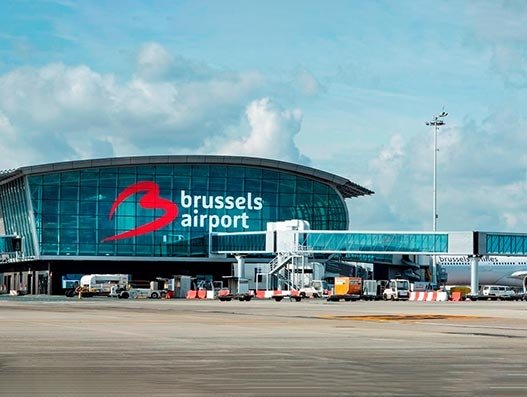
Air cargo flexibility is the new necessity in Covid-19 crisis
Steven Polmans, Chairman, TIACA and Director, Cargo and Logistics, Brussels Airport, calls for extraordinary flexibility in air cargo operations

More than 100 countries have imposed travel restrictions as the surge in Covid-19 cases continues. This has forced airlines to cut back on their passenger services dramatically, while keeping their air cargo operations functioning as flexibly as possible. The need for flexibility is not just restricted to the airlines but has greatly extended to airports and ground operations.
“The most important thing for us today is to keep the air cargo flying as flexibly as possible. And it is always regrettable that we need crises to show the value of air cargo,” said Steven Polmans, chairman, TIACA and director, cargo & logistics, Brussels Airport Company, at a webinar hosted by The STAT Trade Times on the topic of “Demand outstrips supply - the air cargo challenge in a pandemic”.
The International Air Cargo Association (TIACA), The International Air Transport Association (IATA) and other organisations have been fighting their own unique battle against the rigid government regulations that are failing to aptly respond to the newly adopted methods by the air cargo community in shipping critical medical supplies and essential goods. The organisations continue to advocate the needed bailout for the airline industry and volunteer to push the regulatory authorities in addressing the novel challenges amid these crises.

Steven Polmans, Chairman, TIACA and Director, Cargo & Logistics, Brussels Airport Company
Polmans opined, “I think the job of TIACA, together with IATA, ICAO (The International Civil Aviation Organization) and other organisation, is to bring this to notice that everybody has to work together. There is no room today to fight who’s right and who gets the onerous things done. In anything we do, we need to keep these aircraft flying and keep regulations down.”
Over-evaluating the threats of the pandemic, a few countries have resorted to destructive measures such as blocking airspace, which, as Polmans put it “is a decision made strictly focusing on passenger services, ignoring the importance of air cargo.” He also drew attention to potential dangers of such restrictions, “Imagine half of the freighters not flaying around, what situation we would be in today.”
Major airports in Europe are reporting very dismal air traffic figures. For example, Frankfurt reported a 25 percent decline in air cargo volumes and 95 percent drop in passenger traffic. This has trimmed down belly capacities significantly. And Brussels Airport, performing quite similarly, is moving 70 percent of cargo in freighters and 30 percent in bellies.
“Cargo is still very busy but overall volumes are still very down. We are not working on the same level as we did months ago. The concentration is on full freighter operations, which is causing some specific problems.” explained Polmans. The problems are seemingly mounting as the freighter operations are peaked at terminals across the globe and are presenting unique challenges, which Polmans elaborates in his talk: “Our greatest challenges is the increase in the freighter movements; how do we park them; can we manage them at the cargo apron; do we need other aprons at the airport in the handling process. We are seeing less optimal uses of infrastructural resources.”
Concerns surrounding imports to Europe from China, US, Africa are also deepening. As a few airlines have worked on corridors to China in bringing in essential medical supplies to Europe, imports from Africa have taken a hit. TIACA is deeply involved in supporting the works of the air cargo industry and voicing their challenges to regulatory authorities. At the same time, the association maintains relations with world customs organisations and remains informed on developments in Africa.
Commenting on the restricted imports from Africa into Europe, Polmans stated, “The big drop in business out of Africa into Europe is not because of less demand but because of less capacity.” He added, “Certain markets in Africa are perfect for the daily regular belly holds but not economic enough to operate a freighter once a week. So we do see big impact on local markets. It’s a worrying situation for the African countries because if they cannot export their produce, it will have big impacts on their economic status and on their lives.”

